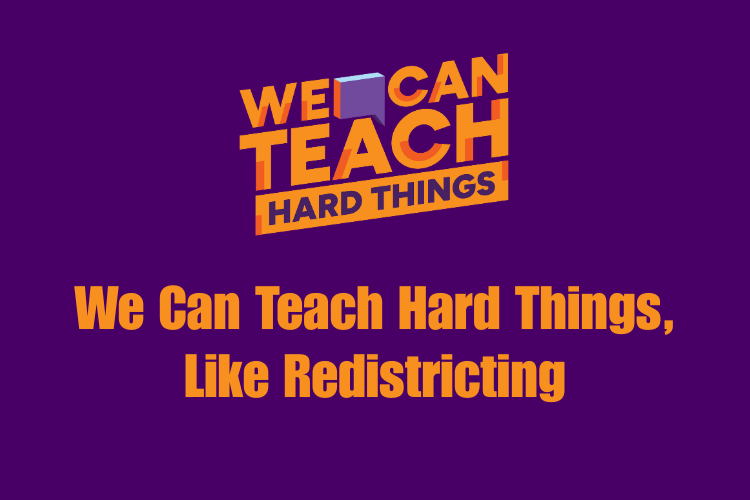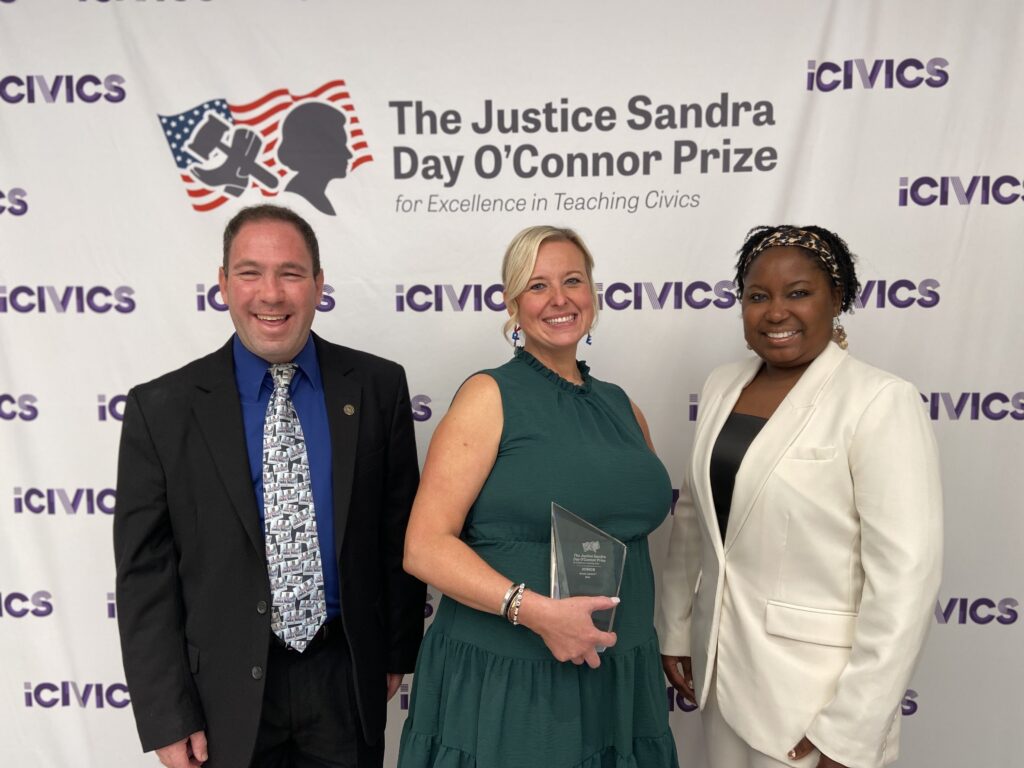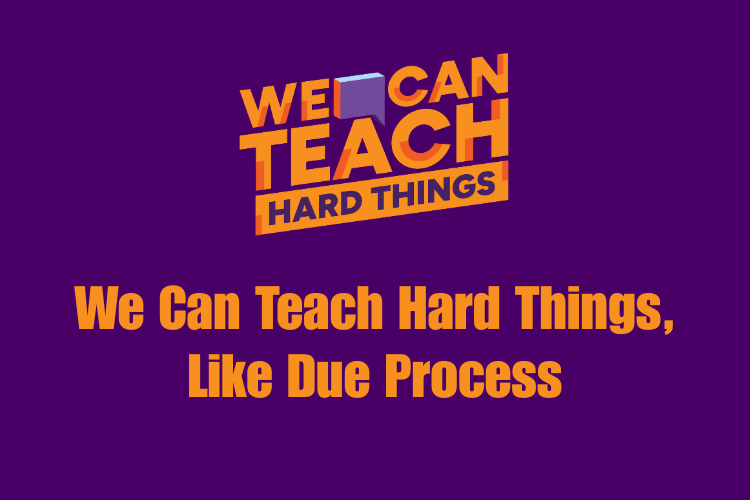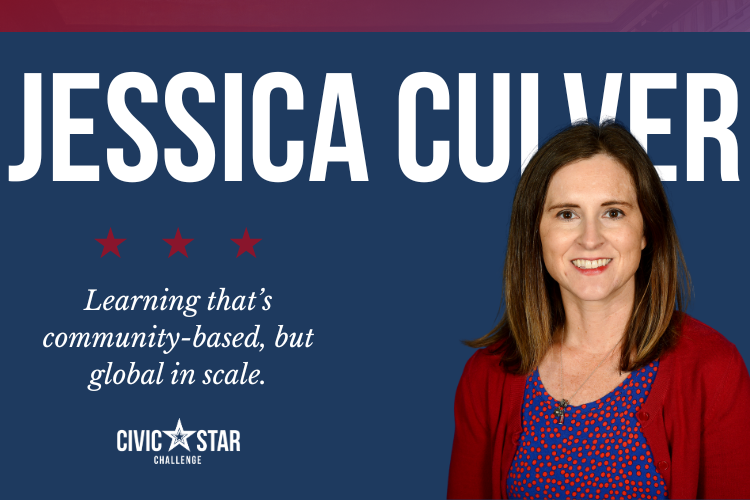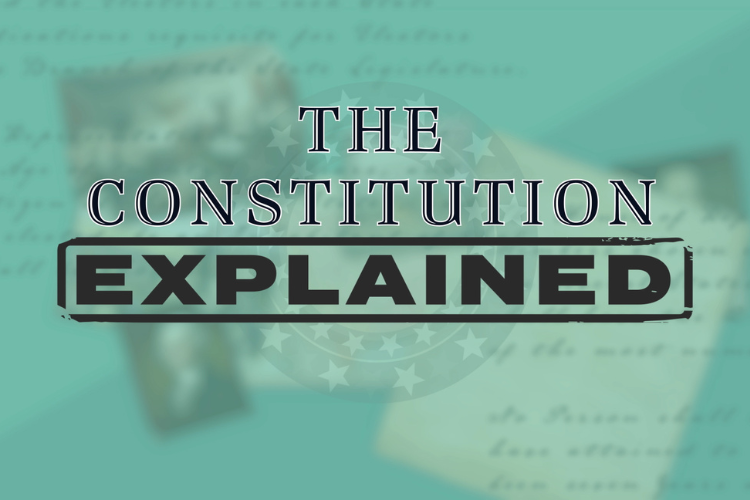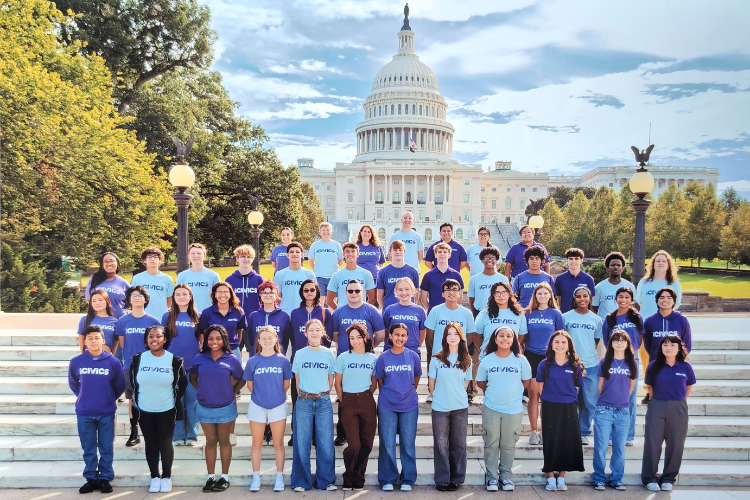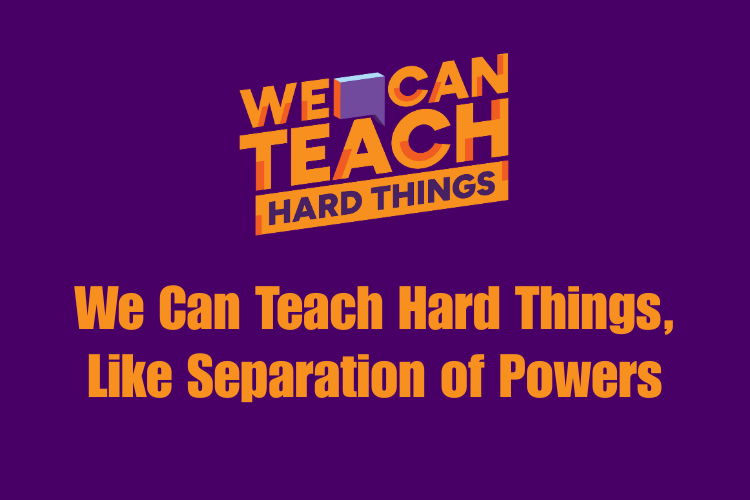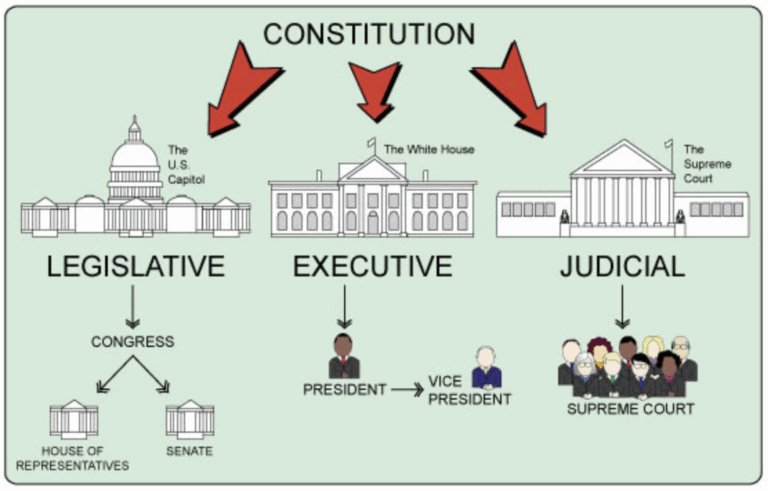As I sit down to write this redistricting blog post, an assignment I gave myself over a week ago, I’m trying to digest some of the most politically charged news we’ve ever seen surrounding this routine, procedural, and, by all reasonable accounts, anodyne topic.
To be clear, I’ve been teaching civics and government long enough to know that redistricting, and its notorious counterpart, gerrymandering, are anything but routine, procedural, or anodyne. But goodness, the past few months have taken this concept to a whole new level.
This latest episode began in Texas, gained momentum in California, and quickly spread to midwestern states and more as our nation’s two major parties seek to expand their power in Congress, not by appealing to more voters, but by redrawing legislative lines in their favor. To use a sports metaphor, it’s like trying to win more college football games not by recruiting better players, practicing harder, or designing better teams, but by weakening the strength of your schedule or spying on your opponents.
Now, redistricting was already a political firestorm even before the President of the United States publicly referred to a sitting U.S. governor as an unambiguously offensive slur, which led to an Indiana State Senator from the President’s party refusing to support a redistricting bill that the President supports.
Talk about a hard thing to teach!
Still, redistricting is an important part of our political system that citizens must understand, which means it’s a critical component of American democracy that must be taught to our nation’s youth. Perhaps not in third grade, but certainly in high school if not earlier. The good news is we can teach hard things. Let’s discuss how this applies in the context of redrawing legislative district lines.
I hope it goes without saying that we should all review our standards, plan a structured lesson aligned with the relevant standards, and then communicate that plan to key stakeholders. Let’s talk about how to create that structured lesson plan.
The first thought that comes to mind is to depoliticize this highly politicized topic. The second thought is to take it back to the beginning!
Constitutional Convention > Great Compromise > Representation in the House based on state population > The Census(!!) > Reapportionment > Redistricting
History ✅
Institutions ✅
Processes ✅
Federalism ✅
In other words, there is a significant amount of content to cover before reaching the current political controversy. Lean into that space.
If you haven’t already covered that content, start there. If you have, be sure to review it. Redistricting isn’t something we can teach in a vacuum. It requires a significant amount of background knowledge to make sense. Here are some iCivics resources to support you on that journey:
Constitutional Convention and the Great Compromise
- Video: Constitutional Convention
- Game: Constitutional Compromise
- Game: Race to Ratify
- Lesson Plan: Major Clash? Compromise!
Representation in the House based on state population
- Video: The Constitution Explained: The People’s Branch
- Lesson Plan: Why Do We Have a House and Senate, Anyway?
- Lesson Plan: Representation
The Census
- Infographic: Plug into Power
- Lesson Plan: Get Counted!
Reapportionment, Redistricting, & Gerrymandering
- Webquest: Reapportionment & Redistricting
- Infographic: Gerrymandering. Where do we draw the line?
- Video: Gerrymandering. Where do we draw the line?
The current politics surrounding this issue are super juicy! If your students express interest in going there, and you feel you have enough information to do so safely, then I say, “Let ‘er rip!” Just be careful. If it’s helpful, here’s my criteria for making the personal decision to navigate a “currently controversial” topic with students:
My emotions are in check. I may have a personal opinion on the matter, but I’m not feeling particularly heated about it.
I can, in good faith, represent multiple (or both) sides of this issue. I’ve conducted my research and considered what I want to say and how I might respond to student questions.
I have a good rapport with my students and feel comfortable with the classroom culture I’ve cultivated.
Admin Tip: Be an instructional thought partner with your civics teacher! If they come to you with their plan for teaching redistricting and it happens to make you a little uneasy, welcome the opportunity to brainstorm ways to make it engaging, relevant, and standards-aligned with a lower chance of inspiring any sort of blowback.

